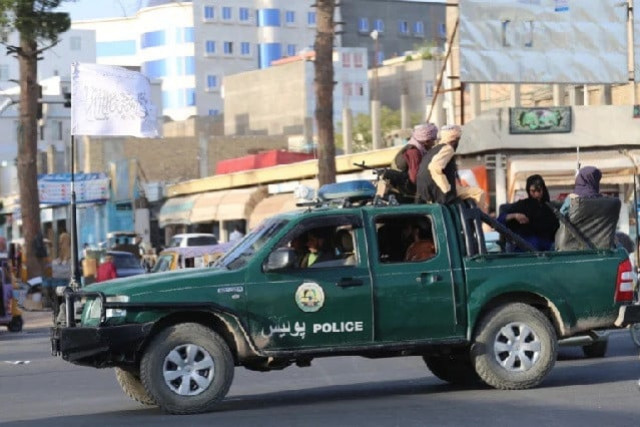Taliban kill ISKP commanders responsible for mosque attacks
Sleeper cells raided on Sunday night; scores of ISKP members arrested

The Afghan Taliban carried out search operations in the Bagram district of Kabul on Sunday and killed two main commanders of the Islamic State Khorasan Province (ISKP), who attacked mosques and religious sites, and arrested many others.
According to the Taliban's Spokesperson Zabihullah Mujahid, sleeper cells were raided on Sunday night by the district administration, special forces and local police. The contingent managed to kill the most wanted ISKP commander Yousaf and arrested Muhammad Agha, among others.
Yousaf and Muhammad Agha were responsible for planning attacks on religious sites, power stations and power installations across the country, including Kabul, according to Mujahid.
“On their information, raids were conducted in central and suburban Kabul, and scores of them [ISKP members] were arrested and killed,” the spokesperson added.
Read Six wounded in grenade attack at Afghan mosque
Mujahid stated that more details of the operation would be shared once received.
A series of deadly attacks have rocked Afghanistan in recent months, a little under a year since the Taliban takeover.
On Saturday, a bomb blast on a minibus killed at least four people and injured several others in the Afghan capital, police said.
Dozens of civilians were killed in Kabul and other cities in primarily sectarian attacks during the holy month of Ramazan, which ended on April 30 in Afghanistan, with some claimed by the Islamic State group.
Many of those attacks targeted the Hazaras and Sufi communities.
Some of the bombings struck minibusses ferrying passengers from offices or markets to their homes.
But the deadliest attack during Ramazan came in the northern city of Kunduz, where a bomb targeting Sufi worshippers tore through a mosque on April 22.
At least 33 people were killed in that blast and scores more were wounded.
The regional branch of IS in Afghanistan has repeatedly targeted minorities such as Sufis, who follow a mystical branch of Islam.



















COMMENTS
Comments are moderated and generally will be posted if they are on-topic and not abusive.
For more information, please see our Comments FAQ